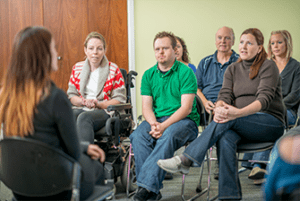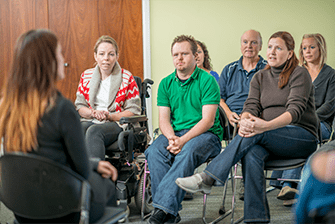
Withdrawal from alcohol can be debilitating, if not deadly. Alcohol is one of the very few substances that can send the body into deadly withdrawals in someone who chronically abuses alcohol. It is highly recommended that a chronic alcohol abuser seek professional treatment to help overcome their cravings and undergo withdrawals in a safe, controlled environment. Medication-assisted therapy (MAT) is commonly used in the setting of alcohol withdrawals, and these medications act to minimize the withdrawal symptoms. Besides medication-assisted treatment, there are a plethora of proper coping methods during alcohol withdrawals that an individual can practice during their withdrawal from alcohol.
- Drink lots of fluids and electrolytes: Alcoholism often co-exists with dehydration so, during withdrawals, it is crucial to stay hydrated.
- Keep an active support group: Withdrawing from alcohol can bring on many feelings of loneliness, so it is essential to create a positive support group full of people who have your best interest at heart. Developing meaningful and supportive relationships can help to bolster your sense of belonging, self-confidence, and even self-awareness. Whether it be rekindling an old relationship with a family member or friend, or establishing a new one, these positive relationships are an essential part of recovery.
- Eat a balanced, healthy diet: Many individuals who are addicted to alcohol also suffer from poor nutrition, so it is vital to eat food full of fruits and vegetables during withdrawals. Your body needs vitamins.
- Avoid your drinking buddies: One of the most important things to do when beating alcohol withdrawal is distance yourself away from enablers and any drinking advocates that are in your life. These are the people that don’t want you to get sober. They often will minimize your addiction by telling you it’s not that big of a deal. They may even try to offer you alcohol during your detox. It’s best to cut these people out of your life during this time.
- Exercise: While you may not feel like it, an appropriate amount of exercise is one of the best tools for coping with alcohol withdrawals. Exercise releases endorphins into your brain, creating natural happy feelings within a person. Plus, you will begin to feel stronger and more powerful as you work out. It’s good for your self-confidence and your recovery.
- Start a new hobby: When you stop drinking, you will find that you have a lot more time on your hands. You might be shocked at how much time you spent drinking, thinking about drinking, driving to drink, and obtaining alcohol. It’s always good to sink your time and energy into something fulfilling and productive. Do you have an old hobby that you would like to start up again? Alternatively, is there a new hobby that you would have always wanted to delve into?
- Avoid high-risk situations: Avoid people, places, and things that remind you of drinking. Sometimes you won’t see your high-risk situations until you’re right in the middle of one. That’s why it’s vital that you learn to look for them. Please make a list of your high-risk situations and keep it with you.
- Join an alcohol support group: You can engage in various support groups, whether they be faith-based or secular, 12-step or non-12-step, these groups can offer you the benefit of shared experiences through the peer-to-peer support. These interactions provide greater accountability, encouragement, and access to various other coping skills.
- Mindfulness and meditation: Learning to be in the present moment and to practice meditation can help with stress and cravings. Mindfulness has been shown to enhance self-control and temper impulsivity, two things that are of great benefit when you are striving to cope with a potential trigger. Mindfulness practices, often accompanied by yoga and may include meditation, breathing exercises, and even spending time outdoors to clear your mind.
